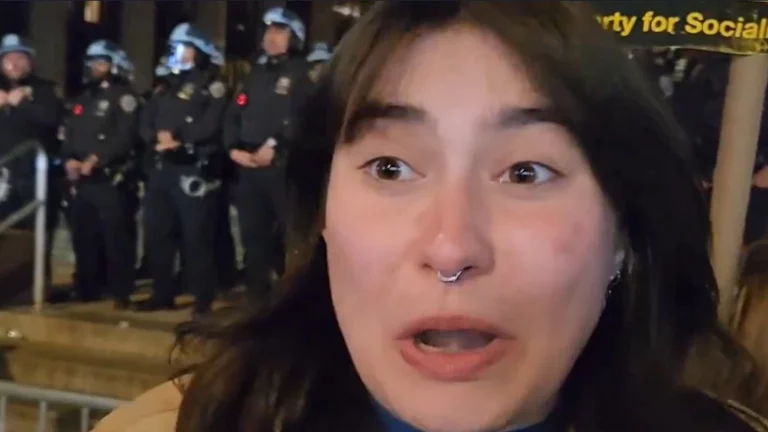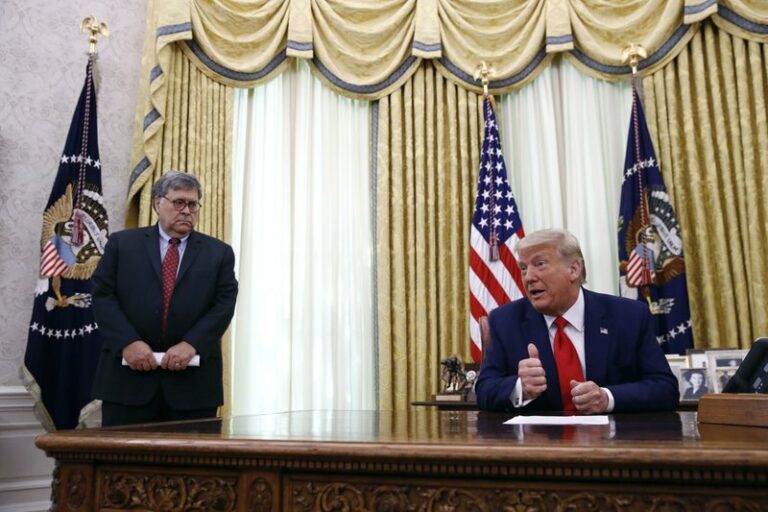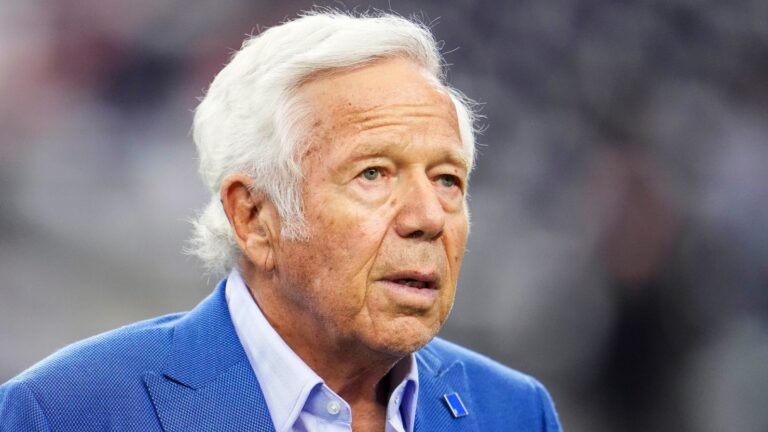 First the good news.
First the good news.
Within the last several years, a wide range of government-funded educational services has been made available to yeshiva students with special needs.
And now the not-so-good news: Yeshiva special ed students have yet to access — and thus benefit from — the full range of those services.
The problem, says Mrs. Leah Steinberg, director of Agudath Israel of America’s special ed division, Project LEARN, arises primarily from the fact that many yeshivos, overwhelmed by the intricacies of the special ed services delivery system, are finding it difficult to incorporate those services within their schools’ “regular” education curriculum.
“A well-coordinated service delivery system within the school maximizes the benefits students get from the special ed services they receive,” Mrs. Steinberg observes. By way of illustration, she offers up two very different scenarios. In the first, “Chaim” is receiving speech therapy outside the classroom and is progressing nicely. In class, though, he is reluctant to speak up; it seems whenever he raises his hand to answer a question, his teacher turns to someone else before he has a chance to get the words out. With little or no positive feedback from his teacher, Chaim soon loses interest in keeping up with his studies.
In the second scenario, Chaim’s speech therapist and his teacher work in tandem as a well-coordinated “educational team.” Chaim’s therapist advises his teacher to wait a few seconds for Chaim to organize his thoughts before answering a question. A bright student, Chaim generally gets the answer right. The positive reinforcement he gets from his teacher pushes him to work harder both during his therapy sessions and in the classroom.
“When there is little or no communication between the special ed service provider and the teacher, the student is reaping less than the full benefit of the services,” Mrs. Steinberg avers.
The question of how to better support the special ed student in the mainstream yeshiva classroom was, in fact, high on the agenda of a recent meeting organized by Agudath Israel and sponsored by the New York City Department of Education Integrated Service Center (ISC) of Staten Island — the entity that encompasses Committees on Education (CSE) 6 & 7, which are responsible for the delivery of special ed services in Borough Park and Flatbush. The meeting, which was held at Bais Yaakov of Borough Park and attended by approximately 125 yeshiva principals and officials of the New York City Department of Education (DOE), was part of an ongoing dialogue between the yeshivos and the DOE regarding ways of enhancing special education service delivery to students in schools located in the Borough Park/Flatbush sections of Brooklyn.
One of several exciting proposals that came out of the meeting, says Mrs. Steinberg — and one which Agudath Israel is already working to implement — is to have each school designate a “special education coordinator” who would serve as a liaison between the DOE, the special ed service provider, the school’s regular staff and the parent body to ensure that students with special needs receive the services to which they are entitled within the larger framework of the school’s educational program.
.
In his presentation to the principals, Michael Gersch, deputy executive director of special education for ISC Staten Island, stressed his goal of creating a parallel special education delivery system for nonpublic students comparable to that of students attending public schools under their jurisdiction.
In the days immediately following the meeting, Mrs. Steinberg reports, the official furthered that objective by setting in motion plans to create workshops designed to help yeshivos identify students with learning difficulties who can, with proper intervention, benefit from the school’s regular education curriculum. The workshops will also focus on how to obtain and properly coordinate special ed services once it has been determined that a student does, in fact, need them.
In the planning stages, as well, are workshops aimed at educating parents about their rights and obligations in accessing appropriate services for their children.
Also offering remarks at the meeting were Rabbi Chaim Dovid Zwiebel, executive vice president for government and public affairs of Agudath Israel of America and Mr. Richard Altabe, principal of Magen David Yeshiva- Celia Esses High School.
In his presentation, Rabbi Zwiebel said he was heartened to see how the attitudes of New York City government officials toward special ed yeshiva students have changed over time. He thanked the DOE for being “a partner” in carrying out the mission to serve every Orthodox Jewish child, whatever his or her educational needs, within the yeshiva system.
Mrs. Steinberg echoes that sentiment. “I feel confident that the meeting will result in concrete gains for our special needs children,” she says, noting that CSEs servicing other neighborhoods are planning similar events in the near future.
“Working together, we can help ensure that all our children are afforded a chance to succeed.”






13 Responses
I’m all for helping the yeshivos and Bais Yaakovs, anyway possible.
However, let’s do what we can ourselves–things that don’t cost money.
Let’s ban all candies and sugared sodas in school. Dr. Feingold’s research has proven–and any Rebbe will confirm–that when children eat these artificialy-flavored, artificially-colored, artificially-preserved nosh delights, they become restless and can’t concentrate on their studies–“self-inflicted learning disability.”
Unfortunately a lot of special kids have to go to public school because yeshivos are not equipped to handle kids with special needs. There are just not enough trained teachers in yeshivos that are able to deal with these issues. There is more support for learning disabled kids, but other cases like kids on autistic spectrum (who can function in a class room, and do so in public schools) get shortchanged. In NY one in 150 kids and in NJ one in 90 is on autistic spectrum (including PDD, Aspergers etc.). I think it’s time yeshivos required a higher standard of training in developmental disabilities from their teaching staff and hanholo.
Not to be nit-picking but for the record, it is special education and general education. What is regular education?
Unless you hire an experienced and good attorney, you have no chance of getting the proper services that your child needs. This is just to make Aguda look like they are doihng something, but speak to any parent who has tried to get services!
I think one main reason that the teachers in our yeshivos are not so educadted is because the teachers don’t get paid so much, & you wil see the schoolls that do pay nice , have better teachers & they deal with the problems better
To #4, I am just wondering if you ever needed the services from Project Learn. As far as I know (first hand as a mechanech) they are doing a wonderful job in getting the services that the special needs child deserves to get!
To #4,
“speak to any parent who has tried to get services”,
As a mechanech I have and I can tell you that the way you are talking sounds like you have something against Agudah. Project Learn, from a mechanech’s viewpoint, is doing a phenomenal job.
As a preliminary matter, I am a proud “card carrying” member of AYOA. I have only admiration for the avoidas hakoidesh that the talented staff member do, from chaim dovid all the way down to leah steinberg.
But that does not contradict the point that I made. Project Learn DOES NOT assist the individual parent with his/her battle with the CSE in getting servicecs. While its fine to play nice with the DOE officials, the bottom line is that its the PARENTS that need assistance when the CSE refuses to provide necessary services.
(You may want to contact project LEAP, for only 1 such example)
First off #1 that is not the answer (to get rid of the candy) but rather a band aid and as far Dr. Feingold is concerned never heard of him nor of his study. As far as the Rebbi is concerned the majority of them are do not even have a Masters or any degree in teaching so I think they have no idea what they are saying. Now of course if you said the Rebbi or teacher has a degree of any kind in education or special ed than I would be more open minded, sorry.
As a parent of a child with a LD I have a problem/issue here. First off the Yeshivah system works with the boys at least one Yeshivah does that I know of. As far as the Bais Yaakov system sorry ppl their only agenda is to graduate the girls and get them married soon after with nothing less than a medial job. When I stated to the principal of a Bais Yaakov that I wanted my daughter to have a diploma in order that she be able to goto to college to earn a degree I promise you thought I gave the principal C”V a heart attack when I heard no response. As a matter of fact they had no response.
So it is harder in a Bais Yaakov to get the services needed than it is in a Yeshivah as the Bais Yaakov really has no desire to want to educate a child with special needs again as I said my wife and I deal with the system as does a dozen of other parents do and are if anything but stonewalled and given excuse. In other words the Bais Yaakov system in not “PROACTIVE but rather REACTIVE.”
So ppl unless you have a personnel expierence and not hearsay than all are intitled to their opinion but do not put down those with a personnel stake in the system I think not.
I now step off my soap box….
As a parent of 2 ASD children, here is the problem: there are a number of yeshiva programs which cater to what they call “LD” or “learning disabled” children. The problem is that the children they want are not actually disabled, rather they children are slow, or at least, slower than the usual fast pace of the yeshiva environment. Imagine if every child in a class were made to run 5 laps around the gym – there would probably be few who run pretty slowly and come in maybe minutes behind the rest – would you say these children are “disabled”? Of course not! Yet, that’s what’s happened with the yeshivas – if some child doesn’t fit into the cookie-cutter mold and might need to learn slower, then they are called LD and sent to these LD programs. Which of course leaves no room at all for true learning disabled children, remember, not mentally disabled (for which there are programs) but children who can learn and have shown to be smart, but have specific learning issues. It’s a rachmunos that it has come to this, but my children are attending District 75 public school programs – whether or not the DOE is fair about their level of services is open to debate, but at least they recognize a true learning disabilty. I’ve tried and continue to try to find a yeshiva seeting for my children. It is not easily found.
Frumdad:
I tend to disagree with you strongly. The yeshivahs do not cater to LD students. I know my son is LD and has been tested by the DOE and has been found to be LD. This also has been supported by our peditrician as well. In order (as you surely know) a student with any disability and needs to receive services from the city needs to be evaluated & tested every year by the DOE inorder to continue services and have an IEP in place for services needed to be supplied. Now of course this does not apply to the Bais Yaakov as I stated(#9)above.
But to say that a yeshivah caters is not fair and definitely a wrong statement of course what I say applies to those yeshivah’s that receive DOE funding for Special Ed/LD classes. Which btw the teachers in those classes MUST be certified in Special ED ie: a Masters.
So again I strongly disagree with your statement and wish you had more proof to the accusation that the “Yeshivah’s cater to the LD student.”
Also to finding the right Yshivah not all yeshivahs have the room or faculty to support a special ed class. Remember the community for a long time and I mean going back to the 1980’s kept their LD, and other special children in a closet due to shidduch reasons and here I know this for a fact as I have as well as my wife between the both of us 30+ yrs in special ed. Thus it is only in the past decade that these families have been opening up to the fact they have children with special needs and thus I feel the yeshivahs need to play catch-up with the growing numbers.
I apologize frumdad if I sounded harsh but I felt your statement about “catering” needs to have some proof.
I now step off my soap box….
I’m actually agreeing with you. What I may not have made clear is that most Yeshivas do not have any support for any learning disabled child. But I’ve looked and found a few Yeshiva programs which are purportedly geared toward LD children – and what I’ve found is that those children are not even LD, rather just slower than those in a fast paced Yeshiva setting. If I mention that my child is autistc, they brush it off and say it’s not the children they have. So I am agreeing – there are almost no Yeshivas that cater to LD children, and those that say they do, do not have true disabled children, rather slower ones.
Well now if you are talking autistic children I can say that the Yeshivah’s are truly not geared for that. As you said as I have seen that there are few that even deal with LD. So to be honest it would seem as yeshivahs are taking small steps towards special needs children.
BTW have you thought of HASC I have worked there. They have an excellent special ed program. Give them a call…